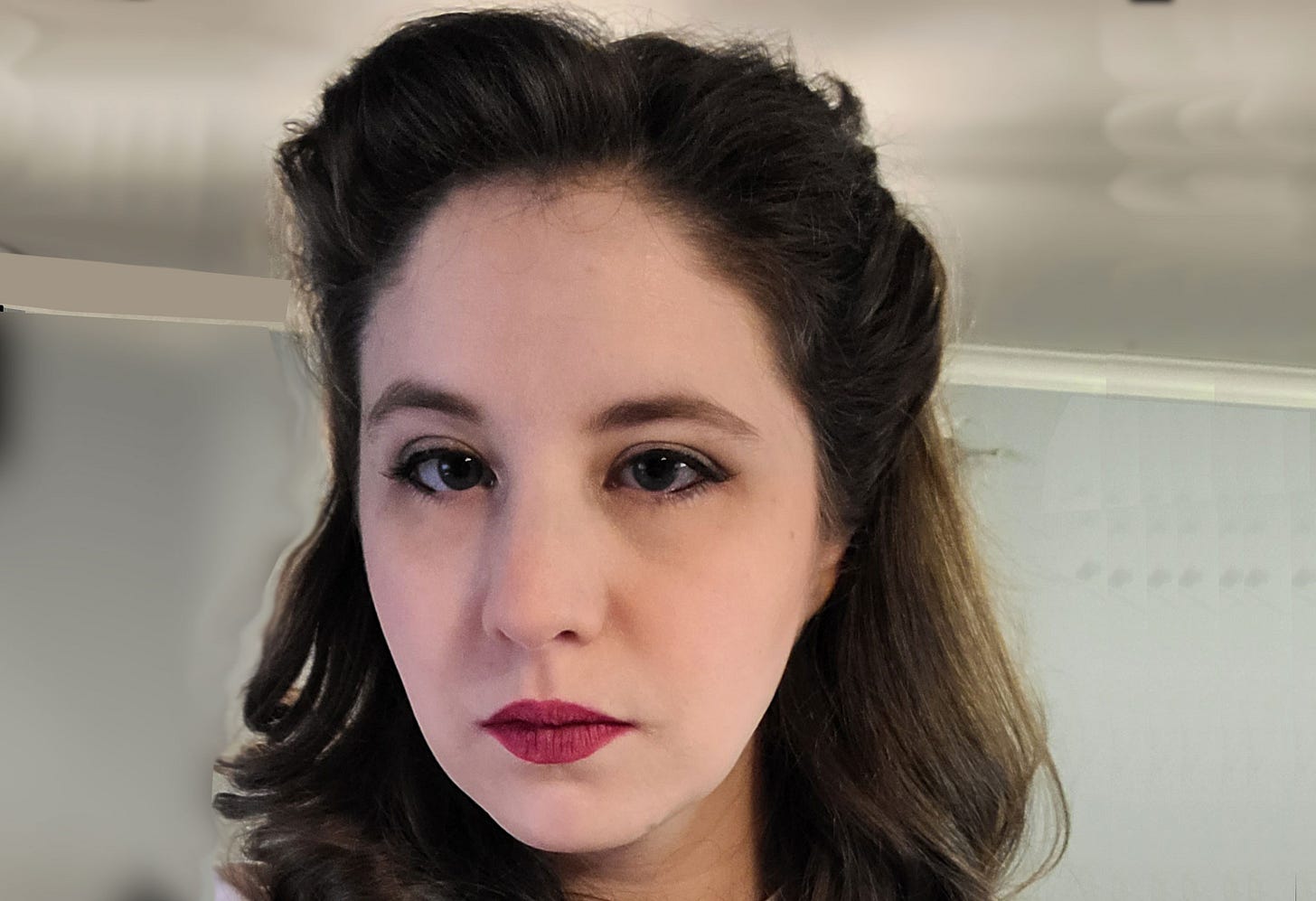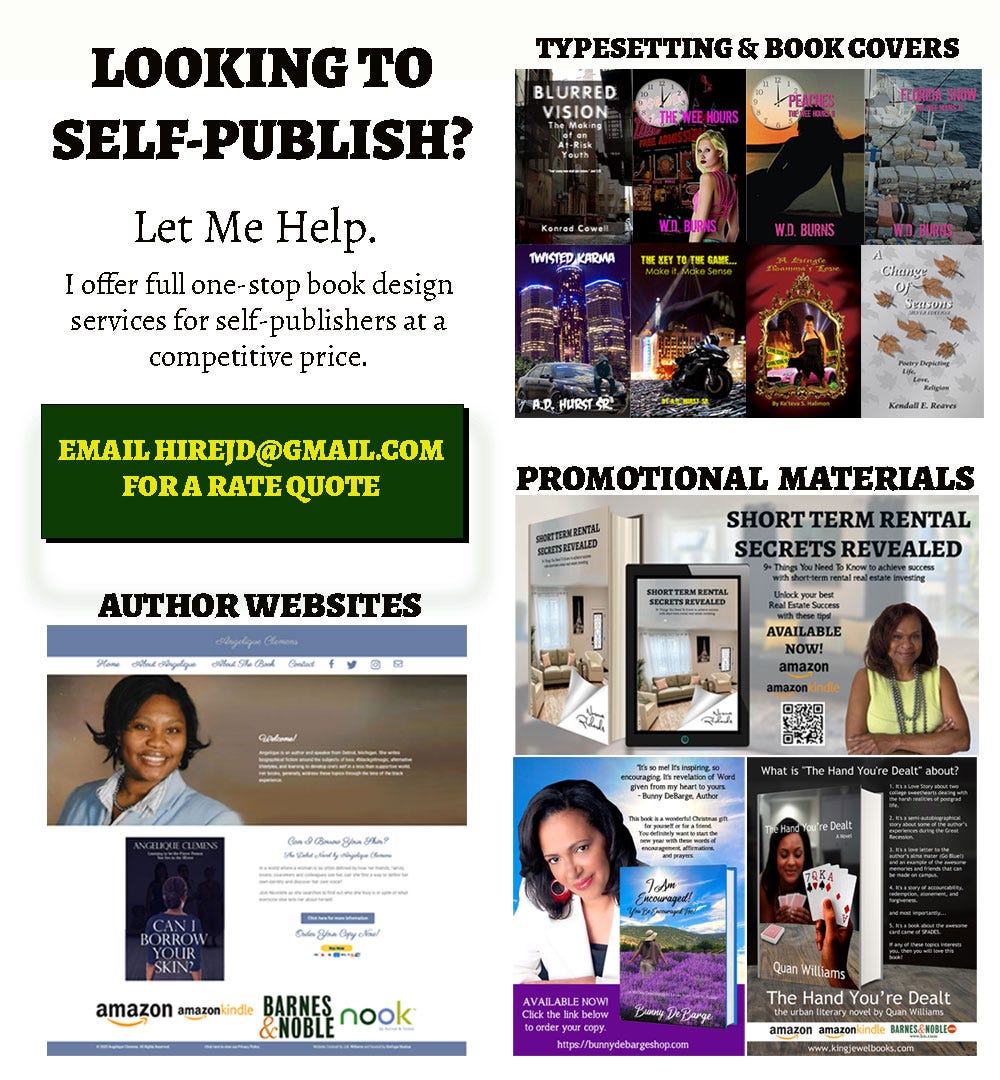Logan was recommended to me by another Author I interviewed. Here are her thoughts about her approach to storytelling.
What inspires your writing?
My writing is mostly inspired by classic literature and vampire cinema.
For the Odeum series a few books that were a huge inspiration was Tess of the D'Urbervilles by Thomas Hardy, Slaughterhouse-Five by Kurt Vonnegut, The Gods Will Have Blood by Anatole France, The Underdogs by Mariano Azuela, The Progress of Julius by Daphne du Maurier, and Haunted Castles by Ray Russel.
As for cinema, I was heavily inspired by Buffy the Vampire Slayer from a young age. The movie was quirky and goofy but did a good job balancing this with serious moments. The show carried this as well.
Other vampire films that struck me at a younger age were those:
From Dusk Till Dawn
30 Days of Night
John Carpenter's Vampires
Bram Stoker's Dracula
The Lost Boys
Byzantium
Let the Right One In
Queen of the Damned
I was also inspired by a multitude of horror films, primarily psychological horror. Us, Midsommar, The Sixth Sense, 28 Days Later, 10 Cloverfield Lane.
My inspiration also comes from other sources such as survival/adventure stories, non-fiction and fiction, real life/current events, history, art, music
What is your process of developing characters?
When developing a character I think of the role I need them to play in the story, what kind of personality I want them to have, and then what their backstory looks like. Sometimes I have an image in my mind of what they look like before I write about them. Sometimes I have no idea what they look like until later. As the story develops I might get inspiration to add additional quirks to the character.
Did you Start with a story outline or did you make it up as you went along?
A lot of the time I have an idea for a situation and I build the story around it. I might have an idea for a plot and work from that. A lot of my stories are ideas I have written down, then I might create an outline around those elements. I think starting with an outline is an incredibly dull way to write. It makes the process seem as though you have to stick to the confines of that plot and that's not how creating a good story works. A lot of things can change between drafts where you find that some things don't work the way you might have intended and you end up reworking them. I like the ad-hoc approach to creative storytelling.
How much research did you need for your latest story?
A lot. At times while I am writing I end up hyper-fixating on minor details, especially if I am writing about a specific point in time. I'll stop and ask, "is that what this was called at that time or is that modern terminology?"
Three hours later I usually end up finding out that historians don't have a good answer for me and I just end up using the pop-history details because that's all we have documented. It's amazing how much of history was documented but how much more is completely lost to time.
What researching methods did you use?
I have articles, videos, essays, a JSTOR account, and books. Sometimes the information I am looking for is just a cursory online search away.
What are some of your methods for handling worldbuilding and establishing a believable and immersive setting in your stories?
I like to incorporate historically-accurate (or as accurate as I can) clothing, settings, cultures, etc. because I find that incorporating these elements into stories makes them feel more real and immersive. My goal with a lot of my work is to take something unreal and ground it with a touch of reality. As a reader, when I read a story where the world or characters feel relatable it makes the world more believable. Different worlds can be as zany as the writer wants, but if the rules of that world don't make sense, or how the people interact or react doesn't line up to true human nature the whole setting falls apart.
Did you draw on personal experience?
Yes. The best way to find your audience is to use personal experience to help craft your story. It's also a good way to ground the story.
How did you publish?
Self-publish, through Amazon.
Why did you do it that way?
I wanted to get my work out there. I did not want to have to find an agent, suffer through hundreds of rejected queries just to have the manuscript get reviewed by 3 different groups to tell me how my story needed to be told. From everything I have learned through the experiences of others, trad-publishing just didn't seem like it was the right path for the Odeum series.
What advice would you have for writers looking to publish the way you published?
-Work with other writers/authors.
-Buy your own ISBNs.
-Ignore criticism of your work and only focus on constructive feedback. If someone says something that doesn't help improve your writing or your manuscript, then it wasn't feedback worth your energy.
-Don't allow your inner voice to be hyper-critical of you but be honest about where you can improve.
-Use Obsidian to help with outlines, character details and keeping track of how things are related or plotted in your story. This is a fantastic (and free) tool for books, short stories, D&D campaigns, etc.
-Always continue to evolve your author voice/writing style, don't be afraid to continue to update your work.
-Once you have the draft of your manuscript complete, read it through with someone out loud and edit as you go, then send the manuscript to a few people for "beta reading", make the updates and changes necessary, then upload to your platform and get an author copy, then read it again out loud while making markups in the printed copy. Reupload and publish.
How long did it take to land representation?
I do not have an agent. I have never looked for representation.
Who did your cover and marketing?
I did.
What are some of the methods you have used to generate interest in your book?
Online content creation has helped but one of the best ways was participating in indie author events and signings. I know that many writers wonder about the benefit of a signing but I think it's a good way to make sales, get your name out, and have discussions with others about your books. Networking with other authors has also been a huge benefit in generating interest in my work.
Did you use beta readers? How did you secure them?
Yes. A lot of them are people I know who have a pretty good eye for critique. In the past I tried posting on forums and writing sites (in the days before TikTok) and I would receive a lot of useless or hurtful feedback.
How many revisions did it take to get a publishable book?
I lost count. It was more than 10. The first book of the series went from a short story to a book, then to a series. It was rewritten and revised over and over, because my style grew and my ideas evolved.
What aspect of the book writing process did you find the most challenging?
There are so many challenges with writing. Finding a balance between explaining and over-explaining is something I am constantly working on in my drafts. There is also the element of explaining things and learning that others might interpret it differently. Conveying ideas to your reader, in the way you intend, is probably the most challenging. I know that I am not alone in this. From some discussions I have also learned that there are readers who don't pick up on satire or irony. Trying to create this in my work without making it too obvious or not obvious enough is difficult. There are characters that I created in the series that were obviously bad people and were interpreted by readers as "misunderstood", so I'm not sure if this and the last item I mentioned is a challenge for me or a testament to literacy rates.
How do you keep your characters, subplots and setting consistent across multiple books?
I stated earlier that I use a program called Obsidian. The mind-mapping feature has been a life saver in this regard. Prior to that, I was using a program called Scrivener but it was clunky and hard to navigate. Before that I had details spread out between various documents or notes. Another technique that helps keep everything straight is to re-read the previous book while writing the most recent one.
What are you writing now?
I just finished a novella called Mercury's Crypt. This manuscript I queried with Indie Forge Publishing House. Additionally, I have been collaborating with another indie author Chris Hamilton, author of Eastern Tales. We worked together on a book called On the Vampire's Couch. Chris asked me to write a backstory for a character, I have been working on that book as well. As far as the fourth book of the Odeum series goes, The Rise of Titans is about 60% first draft and the rest in outline. I have been picking away at that and other Odeum stories that I hope to have out after book 4 in the future.
What is your advice to other writers?
-Don't force yourself to write because you think you have to.
-Don't always write in the same format; create poems, journal, write a stream of consciousness, write random words, write a short story. The way that I keep my momentum going with writing is from changing up what I'm working on but also making sure to finish previous projects. Sometimes a story or project sits on the back burner for years and that's ok. It took almost 10 years for me to get through writing book 1 of the Odeum series.
-If you "pen" yourself into one kind of writing or genre you'll face more writer's block.
-Don't worry about word count, worry about whether you got the scene written. If a book is going to be 20k words then it's 20k words. You can write 10k words in 2 weeks and have nothing of substance written in your story. I've never been a fan of worrying about how many words I wrote in a day, just that I got a scene, mechanic, character, or situation written.
Do you find this useful? Then subscribe! I post author interviews monthly.
Be sure to get your copy of Odeum here!






Great tips and advice—Thanks!
Another excellent interview!
I just had a thought: we're launching a joint newsletter soon. Could I maybe link these interviews on there?